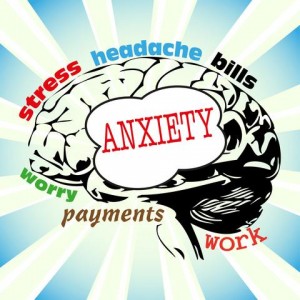1. THE EMOTIONAL

GUIDANCE SYSTEM for Dummies
We humans make many big and small decisions every waking hour.
Each decision moves us one way or another and impacts our lives.
Sometimes a small decision has dramatic consequences as when a decision to run a yellow light results in a collision. Sometimes a decision that doesn’t, in reality, have dramatic consequences gathers anxiety and becomes a ‘big decision’, such as when a person is planning a wedding can’t sleep trying to decide between flavors for the wedding cake filling or ends up in a life and death argument over the issue.
How do we decide? 
We have two major systems to aid in our decision processes. One is the Emotional Guidance System which we have in common with horses; dogs; and a few plants. The Emotional Guidance System is automatic and serves one purpose. Reduce anxiety.
The Emotional Guidance System encourages us to believe we are not capable of regulating our behavior. That our behaviors are all automatic reactions.
We also have a Thinking Guidance System which not automatic. The ability to use your Thinking Guidance System requires learning to manage, rather than to respond automatically, to anxiety. The Thinking Guidance System is described elsewhere.
 What Does the Emotional Guidance System Look Like?
What Does the Emotional Guidance System Look Like?
Most of what we call ‘symptoms’ in psychology are the result of the Emotional Guidance System running wild. The Emotional Guidance System is focused on getting rid of anxiety NOW. In the NOW, there is no time for a decision. The Emotional Guidance System does not have the capacity to ask, “Okay, last time I was anxious, I ate a coconut pie and skipped work. How did that work out for me?”
The Emotional Guidance System isn’t able to look to the future and conclude, “Okay, the last time I was this anxious I ate a coconut pie and skipped work. I ended up with a terrible stomach ache and didn’t sleep well. I skipped work, felt crummy at home, and was further behind at work. So this time . . .” 
The Emotional Guidance System commands: “Do it now. Worry about the future later.” In the case of addictions and consumption behaviors (a two pound bag of Cheetos every night counts), it’s easy to see the long term failure of the Emotional Guidance System. Most all of us have regretted over-eating, over-drinking, over-sleeping, and even over-working. We ask ourselves, “Why did I do that? Every time I do I feel horrible. Why can’t I ever learn?”
 Change is hard. Managing pressure from our emotional system is hard work.
Change is hard. Managing pressure from our emotional system is hard work.
The Emotional Guidance System plays a role in our vulnerability to physical illness, including how long and miserable an illness pans out to be. Anxiety over time reduces the body’s ability to fight off bacteria and viruses. Anxiety affects how we take care of ourselves when ill. 
Anxiety affects how powerfully a physical issue becomes a relationship issue, say an argument over treatment or needed or unneeded help. When a person has a physical illness there are emotional shifts in closeness and distance in the family. Even with long-term illnesses or conditions, health and recovery are highly influenced by the emotional field—which means the levels of anxiety in self and others in the patient’s environment.
The Emotional Guidance System plays a dominate role in relationship problems. If behavior in a relationship is decided on what will immediately dispel anxiety in the other or in self, problems will eventually surface. The misery experienced after one more unpleasant exchange in a relationship, is similar to the repetitive misery we experience when we over-indulge.
 When automatic, emotionally based responses result in arguments and unpleasantness, both partners are disappointed. An evening or a vacation both were looking forward to has slipped through their hands. Again. Each partner is asking; “We were looking forward to a lovely evening. How did we get to this miserable place again? How did the good times and good intentions slip away so fast?”
When automatic, emotionally based responses result in arguments and unpleasantness, both partners are disappointed. An evening or a vacation both were looking forward to has slipped through their hands. Again. Each partner is asking; “We were looking forward to a lovely evening. How did we get to this miserable place again? How did the good times and good intentions slip away so fast?”
When faced with physical discomforts and self recriminations after using food or drink to relieve anxiety, we ask, “How did I get to this miserable place again? Don’t I ever learn?” 
Everyone has anxiety. To reduce the power of the Emotional Guidance System takes a lot of effort. The good news is, even a two percent change in your capacity to manage anxiety can make a big difference. One motivator is the knowledge that allowing emotional pressure to make decisions in the now, results in more anxiety later.
When we react in automatic and damaging ways, we are not being stupid. We are anxious.
The Emotional Guidance System in Action: phobias; over-eating; over-sleeping; addictions; relationship problems; career issues; kicking the dog (don’t do that); cut-off from important relationships; lack of educational or career advancement; indebtedness; tension headaches; late bill paying; arguing; insomnia; lingering viral infections; other lingering infections; playing favorites in a family with destructive results; inability to listen to another’s point of view; inability to stop giving one’s own point of view; insisting things be done a certain way; automatically deferring to the way another person wants to do things; choosing a house; car; career; clothes; shirt; breakfast cereal; or spouse to appear valuable and be less anxious with others; shouting at other drivers; shouting at other drivers and insisting the obnoxious behavior should not bother others in the car; signing up for another credit card by telling yourself it’s a good deal because you will get cash back though you’ve never been able to pay the full balance which is a requirement for the bonus and even though you have another card that needs your attention; not paying attention to interest costs on credit cards; blowing up and losing your job (doesn’t matter how right you may be); saying negative things about your spouse’s or friend’s family; saying negative things about your family; describing the world and people in negative terms; pointing out other’s mistakes; stabbing yourself over your own mistakes; affairs; isolation; fantasize that if only you were rich or famous; you wouldn’t be anxious anymore; sacrificing self or others to feed the illusion that if you had a bigger house or diamonds, you wouldn’t feel anxiety anymore; drug abuse; underuse of appropriate drugs; forty cats; disorganization and wasted time looking for things, lack of follow through, your living space has so much ‘stuff’ in it, you can’t accomplish anything new; ignoring warning signs; depression; you pick up a bill or paper that needs attention and put it down, over and over without finishing the task.
And those are only a start.





